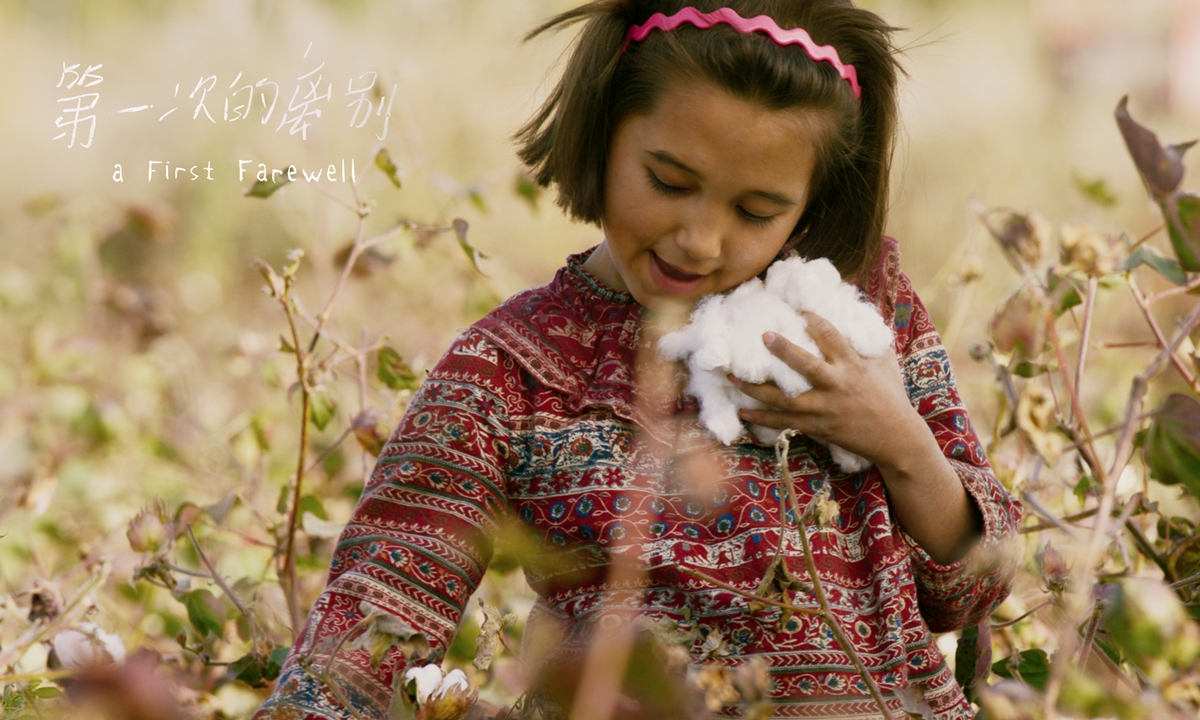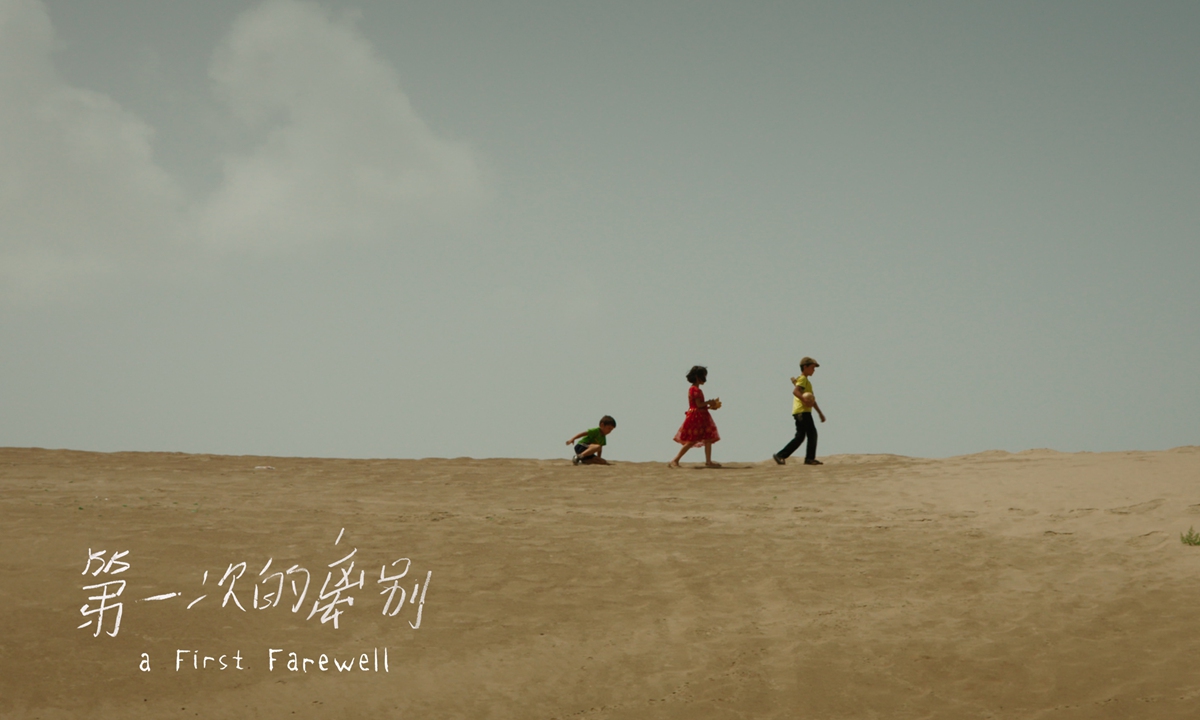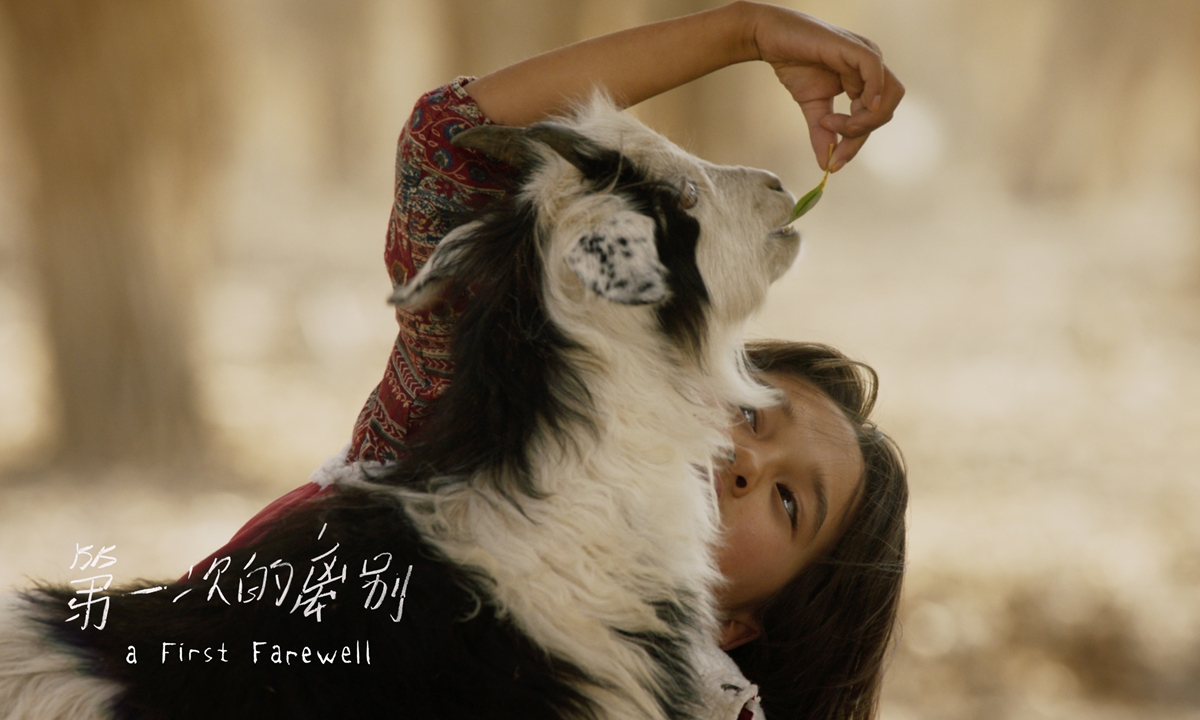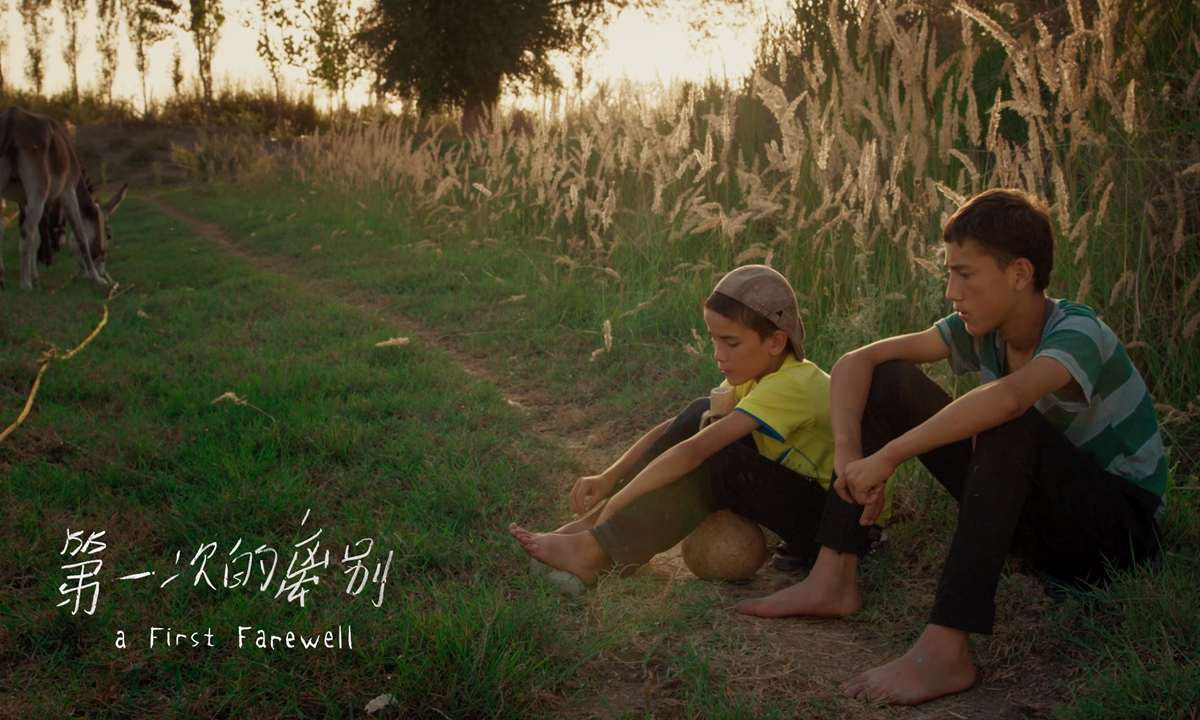Award-winning Xinjiang film ‘A First Farewell’ debuts as Chinese cinemas reopen
By Chen Xi Source: Global Times Published: 2020/7/19 18:33:40 Last Updated: 2020/7/19 10:33:40

Promotional material for A First Farewell Photo: Courtesy of Elemeet

Promotional material for A First Farewell Photo: Courtesy of Elemeet

Promotional material for A First Farewell Photo: Courtesy of Elemeet

Promotional material for A First Farewell Photo: Courtesy of Elemeet
More than 170 days ago, Chinese moviegoers had to bid farewell to cinemas due to the coronavirus outbreak, just like how two Uygur children must also do to each other in the childhood film A First Farewell, one of the first films to return to hit big screens as Chinese mainland theaters reopen on Monday.
The film is a heart-melting story focusing on Isa (Isa Yasan), an elementary school boy from a family of goat herders in Northwest China's Xinjiang Uygur Autonomous Region who leads a carefree life but must say a number of sudden good-byes, including to his beloved deaf mother who his father has decided to send to a care facility and his good friend Kalbinur (Kalbinur Rahmati) who is getting bad grades and is about to be sent to a faraway school.
Growing up amongst the beautiful natural environment in Xinjiang, Isa's childhood is like that of many other people in the region, including the film's director Wang Lina.
When returning to her hometown, the bewitching scenery in Xinjiang sparked Wang's memories of her childhood: endless orchards, cotton fields and the Gobi desert, mysterious mirages after a rain storm, a young man holding a falcon and the time she had to bid her own farewell to her childhood playmates as she left to pursue higher education.
"We all have very similar childhood experiences. We are so close to nature and playmates, and then we say goodbye and finally grow up. In A First Farewell, I hope to present my feelings and beautiful memories of my childhood in the most authentic way," Wang told the Global Times.
Though the film is in the ethnic Uygur language, as a Xinjiang resident, Wang did not encounter any difficulty of directing the cast during filming.
Authentic atmosphere
Wang said A First Farewell is mainly based on the real life of Isa Yasan, who she met at a local school in Xinjiang.
Wang said she was impressed by the boy's love for his mother, who is deaf and suffers from mental illness. When a teacher asked about the boy's dreams for the future, he answered that he hoped to become a doctor so he can cure his mother's illness and afford to buy a toy for himself. Wang said she felt particularly touched when she saw the boy feeding a little orphaned lamb he had adopted and saying to it, "you are the same as me: Mom cannot give us much love, but we should love mom."
Touched by the boy's life, Wang decided to adapt it to film, and the boy made her realize not to use an adult's thinking to treat the boy's story as a tragedy.
According to Wang, the young actors had never watched any films and didn't even know what the cameras were for while they were filming, which made their scenes much more natural.
"Their real lives touched me more than any fictional structure I could impose on the scene."
However, this kind of "natural filming" was also challenging. Making these child actors, who did not have any acting experience, comfortable in front of the cameras meant building trust with the crew. Wang said that her previous experience filming documentaries and half a year of field research was very helpful when it came to achieving this goal.
Additionally, Wang worked with the adult actors to try to create a believable environment and atmosphere that would make the children believe it was all happening for real.
For example, she pointed to a scene in which the character Kalbinur is late for school. She arranged everything in advance including setting Kalbinur Rahmati's alarm clock to ring late, asking Kalbinur's mother to wake her up late and telling the teacher that Kalbinur would be late and that she should scold her. When Kalbinur realized she was late and ended up standing outside the classroom anxiously waiting for the door to open, all her body language (biting her lip, kicking her feet) and emotions (the tears in her eyes) at that moment were triggered by the real emotions she was feeling at that moment. It was only after filming that the young girl found out that it had all been arranged.
Making history
Maybe due to the authenticity on display, this touching story won the best film honor from the international jury of the Generation Kplus sidebar of children's films at the 69th Berlin International Film Festival, the Asian Future Best Film Award at the Tokyo film festival and the Firebird Award of the Young Cinema Competition (Chinese Language) at the 2019 Hong Kong International Film Festival.
"Winning the prizes was encouraging for me, it made me more convinced that I was heading down the right creative road," Wang said.
In Wang's opinion, movies about Chinese ethnic minorities are no different from other films.
"I always believe good movies can heal souls. As long as a story touches me, I will continue filming movies about Chinese ethnic minorities," she said.
As one of the first films releasing after months of theaters being shutdown, it is highly anticipated. A total of 16,000 discount coupons made available during a publicity stream on Saturday night sold out within hours.
Wang said she hopes the release of the film can help restore the confidence of the film industry in China and bring some warmth to movie lovers who have been unable to head to cinemas for so long.
"This year is a very special year for everyone in the world. I have seen too many separations in life… I hope this film can give everyone some warmth."
Newspaper headline: A warm reunion
Posted in: FILM,CULTURE & LEISURE